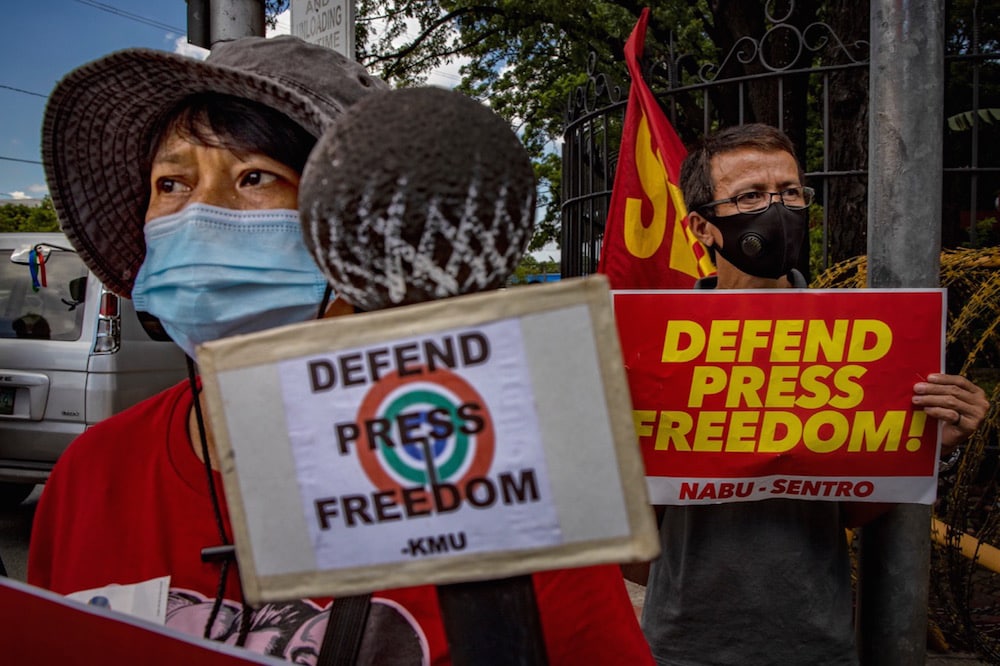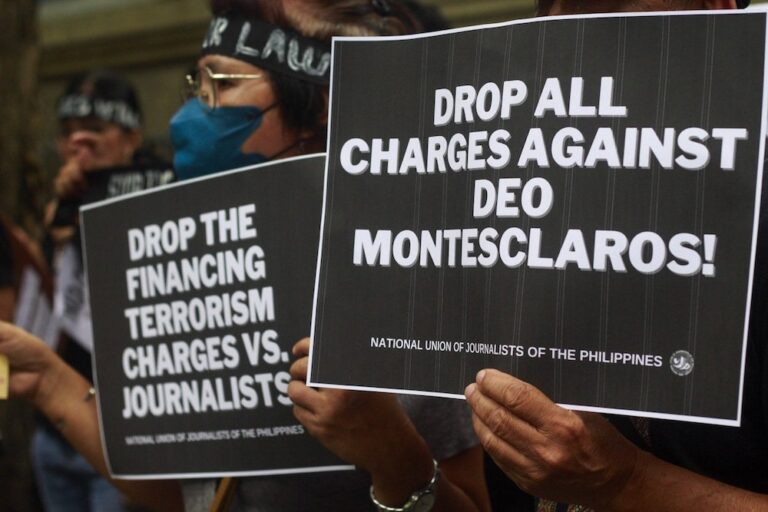A congressional committee has voted to reject the franchise application of ABS-CBN, the Philippines' largest TV and radio network. Since 2016, President Rodrigo Duterte has castigated the network for its critical reporting and has threatened the non-renewal of its license.
This statement was originally published on cmfr-phil.org on 12 July 2020.
THE DENIAL by the House of Representatives of ABS-CBN’s application for the renewal of its franchise is but one more step in the return of authoritarian rule and the destruction of the Republic that President Rodrigo Duterte and his police and military cohorts have been orchestrating since day one of his troubling presidency.
The suppression of the media was among the means that the Marcos dictatorship used to silence criticism, dissent and free expression, and to consolidate his hold on power. Mr. Duterte is doing the same, without, however declaring martial law as Marcos did.
Deny it as regime spokespersons, allies and accomplices will, the plain fact is that ABS-CBN is being penalized for not reporting in a way acceptable to them, and especially to Mr. Duterte himself.
The endless number of public hearings in Congress on the ABS-CBN franchise issue was itself enough of an indication of the regime’s determination to reject the network’s application for a renewal, as the members of the House took turns for evidence to justify it. But if the hearings established anything, it is that the network has been religiously paying taxes and has not violated the country’s labor laws.
The hearings eventually morphed into a litany of accusations against the network’s coverage of issues and events. It is the accusations of bias and errors in reporting that journalists must now be concerned with in the aftermath.
That it did not report one Congressman’s giving away rice and other relief goods was held against the network. That complaint of bias, journalists must point out, assumed that the news media are all knowing, which they are not; and that they are mandated to make those in power look good, an assumption which confuses journalism with public relations. That distinction must be clear to every practitioner, and even more important, to their audiences in print, broadcast and online.
The news media, journalists must also make clear, do make mistakes; but their code of ethics demands that errors of fact be corrected, and an apology made to those who might have been misinformed as a result, or adversely affected in other ways. This is in recognition of the fundamental truth that all human beings and their institutions make mistakes, but that it is not a justification for silencing them.
But all this escapes the malice and limited perceptions of, it turns out, too many of the members of Congress who have been empowered by the electorate to craft the laws of the land.
Now more than ever, it is imperative for the journalism and media community to rigorously defend free expression and press freedom and furtherpublic media literacy, enlightening Filipinos on the ethics, professional standards, and responsibilities of journalism.
But it remains the primary function of journalism to provide citizens with information, analysis and interpretation that citizens need to make informed decisions about the issues that confront them, and to exercise the ultimate power to elect their leaders.
In the end, the people, understanding the role of media in their lives, are in the best position to defend and protect press freedom, as advocate and ally of those who work to keep media independent and unafraid.
What other members are saying:
IPI condemns Philippines’s decision to deny licence to ABS-CBN



